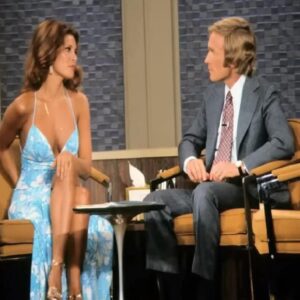The recent Oscars monologue delivered by Jimmy Kimmel, known for his sharp wit and no-holds-barred approach to comedy, has ignited a firestorm of controversy that has rippled through the entertainment industry. The monologue, heavily imbued with “woke” themes focusing on social justice and equity, has reportedly cost Kimmel a staggering $500 million in lost brand deals—a development that has sparked a fervent debate about the intersection of political correctness, creative freedom, and commercial imperatives in Hollywood.

At the heart of the controversy lies Kimmel’s decision to use his platform at the Oscars to address pressing social issues, a move that drew both praise and criticism from various quarters. While some lauded Kimmel for his courage in tackling important societal issues, others criticized him for turning a night dedicated to celebrating cinematic achievements into a platform for political activism.
The fallout from the monologue was swift, with several major brands dissociating themselves from Kimmel in response to concerns over alienating customers who may not share his political views. The unprecedented scale of the financial impact underscores the high stakes involved in the delicate balance between entertainment, commerce, and activism in today’s media landscape.
This incident raises important questions about the role of entertainers in public discourse and the responsibility of brands in shaping public opinion. It also highlights the tension between creative freedom and commercial interests, with celebrities increasingly facing pressure to align their public personas with the values of their corporate partners.
As the dust settles, the implications of Jimmy Kimmel’s loss of $500 million in brand deals continue to reverberate throughout the entertainment industry. It serves as a stark reminder of the complexities inherent in navigating the relationship between celebrities, their audiences, and the commercial entities that support them.
Moving forward, finding a balance that respects creative integrity, social advocacy, and commercial viability will be essential for the future of entertainment in an increasingly polarized world. The controversy surrounding Kimmel’s Oscars monologue underscores the need for a nuanced approach to partnerships that acknowledges the diverse views of audiences while upholding the principles of free expression and artistic integrity.






